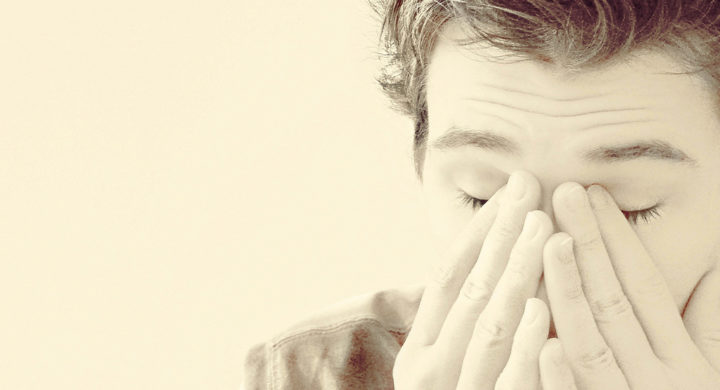Testosterone and Dealing with Low Energy
Testosterone and Dealing with Low Energy
As they age, many men begin to notice excessive tiredness. This chronic fatigue is a symptom often linked to low testosterone, also commonly referred to as “low T.” Dwindling levels of testosterone are to be expected as you get older. The effects can vary. While this is a normal stage of life, the issues related to the lessening of testosterone can be frustrating.
Low energy and testosterone have been shown to be linked. Testosterone is a hormone that is primarily produced by the testes in men. It controls the intensity of men’s sexual interest. Additional duties of testosterone include the manufacturing of sperm cells, muscle maintenance, and generation of energy. It is around the age of 40 that testosterone begins to decrease in men. Typically this loss occurs at a rate of about 1 to 2 percent per year about this time.
If you find you’re extremely tired all the time, there are steps you can take to help. Keep reading to discover more about the relationship between testosterone and energy, as well as what other types of effects can be related to low testosterone. We’ll also explore what you can do to manage the fatigue related to low T.
Testosterone and Low Energy
If you’re feeling chronic fatigue, it may simply be a matter of lowering levels of testosterone. Persistent low energy that doesn’t improve after getting significant amounts of rest can be due to loss of the hormone. Testosterone plays a key role in generating energy, so it makes sense that your energy would decrease with age as your hormone levels naturally decline. Other issues related to low T might also affect your energy. Poor sleep and changes in mood might also play a role in your lack of energy.
It’s worth noting that issues related to your pituitary glands could also affect your testosterone levels, leading to low energy. Medications like steroids, tranquilizers, and morphine interact with the pituitary. Medical conditions such as tumors, HIV/AIDS, autoimmune diseases, or infections could also cause changes in this gland. You’ll want to check with your doctor to pinpoint the cause of your fatigue.
Effects of Low Testosterone
In addition to low energy, there are a number of other symptoms related to low testosterone you might want to look for. Diminished sex drive is one, as well as erectile dysfunction. Mental focus and memory loss might also be affected by a drop in testosterone. In addition, sadness and depression may occur. If you no longer enjoy the things that once brought you happiness, consider low T.
Testosterone is involved in building muscle. Therefore, it’s possible to notice less strength or muscle mass if there’s a drop. You also may not notice typical results from exercise. Unfortunately, additional body fat often comes along with the loss of muscle mass. Your bones can be affected, as well. Osteoporosis is not uncommon with extremely low T levels.
Are you noticing hair thinning in various areas of your body? Yep. Low testosterone can be attributed to this, as well. Pubic hair, facial hair, and hair on the legs and arms may all diminish. Interestingly enough, the hair on your head isn’t usually affected. If you’re not sleeping through the night or are suffering from insomnia, testosterone could be the culprit here, as well.
All of these issues combined can wreak havoc in your life. You might have problems on the job due to your low energy, poor concentration, and focus or mood issues. Your personal relationships could also be affected. If you notice a significant change in your work performance or problems in your home life, it may be worth looking into with your physician. Regardless, a doctor can help to determine whether low T is to blame or if another medical condition might be present.
Ways to Manage Fatigue
Fortunately, there are ways to manage fatigue-related to low testosterone. You should start with simple lifestyle changes to see if that makes a difference before moving onto more complicated treatment considerations. Be sure you’re working to get plenty of sleep. Institute a regular nighttime routine to help in this. Put your phone away and lower the lights at least a half-hour before bedtime. Relax with a book or quiet music. Avoid caffeine at night. Maintain this routine even on the weekend to help regulate your sleep schedule.
A healthy and balanced diet can definitely go far when it comes to maintaining and increasing energy levels. Eat plenty of fruits and vegetables. Try to avoid processed foods or ones high in sugar. Keep unhealthy fats to a minimum. You should also be sure you’re enjoying alcohol in moderation. Too much alcohol can cause liver problems, which can lower testosterone production. Physical activity goes hand in hand with eating well for revving up your energy. Be sure to exercise regularly. Walking, playing a sport or hitting the gym can also make a difference. You also need to be sure you’re taking care of your mental health properly. Lingering depression or anxiety can cause you to feel fatigued and lessen testosterone. When you feel better emotionally, you’ll start to notice your energy soar.
If none of these approaches increases your energy, it may be worth looking into treatment specifically to address your testosterone levels. Hormone replacement therapy (HRT) can restore your levels to a normal range. There are various HRT approaches. Your specialist will talk with you to help determine which might be best for your particular situation. It’s important to know that hormone replacement therapy isn’t for everyone, but it can make a real difference for men whose levels meet particular criteria.
In summary, testosterone plays a significant role in various areas of your life. If you are dealing with persistently low energy, making some lifestyle changes or seeking testosterone-specific medical treatment could have you feeling like your old vital self again. Give our office a call to set up a consultation.

